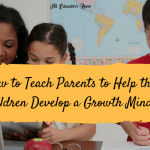Dear Parent or Guardian:
This letter is to inform you that your student will likely fail soon. They might not fail a class, or even a quiz or a homework assignment, but they will fail at something. They will also make mistakes, get feedback on those mistakes, and then make some new mistakes.
[fusion_builder_container hundred_percent=”yes” overflow=”visible”][fusion_builder_row][fusion_builder_column type=”1_1″ background_position=”left top” background_color=”” border_size=”” border_color=”” border_style=”solid” spacing=”yes” background_image=”” background_repeat=”no-repeat” padding=”” margin_top=”0px” margin_bottom=”0px” class=”” id=”” animation_type=”” animation_speed=”0.3″ animation_direction=”left” hide_on_mobile=”no” center_content=”no” min_height=”none”][bctt tweet=”You must let your children fail. ” username=”EducatorsRoom”].
In fact, if you don’t let them fail, you will be prohibiting them from growing their brains. This is not something that educators have invented because we want to hurt your child’s feelings or prevent them from being admitted to college, or make them get a bad grade. This is based on brain science, and it has been scientifically proven to be true.
When human beings fail or make mistakes and when we see those errors as a way to grow and learn and get better, we literally grow new neurons and connections between already existing neurons. When we focus on performance or results instead of the process, when we hold ourselves back out of fear of failure, or when we refuse to try something challenging because we are afraid of making a mistake, we keep ourselves in the same place. Our brains will not grow as much or as quickly, and we will not acquire new skills or knowledge.
Growth Mindset
It is therefore, essential that you and your child learn about what it means to have a growth mindset. The term “growth mindset” was coined by psychologist Carol Dweck. In one study, she formed two groups of seventh graders based on their attitude towards learning. One group agreed with the statement that intelligence is something that is fixed at birth—you’re either smart or you’re not. The other group was formed by students who believed that we can get smarter. She tracked those two groups over the next few years and she realized that the second group, the students who believed that intelligence was not fixed, our-performed their peers, the ones who believed that intelligence was fixed, even though they started out with pretty much the same abilities in math.
[bctt tweet=”When we hold ourselves back out of fear of failure we stay in the same place” username=”EducatorsRoom”]
In another study, Dweck looked at a new group of kids, this time in a lab environment. She and her colleagues gave them puzzles, and when the kids did well on the puzzles, they praised them. But this time, rather than looking at the groups’ already-formed views on intelligence and learning, they influenced their views. They told one group that they had done well and they must be good (or talented or smart) at puzzles, thus instilling in that group a fixed mindset about their puzzling abilities. They told the second group that they had done well because they had worked hard or put a lot of effort into finding different solutions to a puzzle—thus instilling in that group a growth mindset about their puzzling abilities.
What happened next is fascinating. When they asked the fixed mindset group if they wanted to do a challenging puzzle, the majority said no. They were so afraid to undo the image they had of themselves as being good at puzzles, that they preferred to stay with the safe easy puzzles—the ones that had won them the praise the first time. The second group, however, overall relished the new challenges. In effect, the group that had developed a fixed mindset about their puzzle abilities had checked their own learning out of fear of looking bad. That simple praise, a few words spoken to the children, had influenced them that much.
In the next step in the study, having asked the kids if they wanted a challenging or easy puzzle, researchers gave them all difficult problems to solve so that they could see how they reacted to this challenge. The fixed mindset group actually did worse then they had originally done, while the growth mindset group continued to develop. And then, when asked about how they had done, the fixed mindset group lied about their results over three times more often than the other group.
So, now that you understand how it all works, we have a few favors to ask of you:
Please don’t ever praise your child for being “talented” or “gifted” or “smart” or “really good” at something. We know, this is not easy. You have some amazing kids, and they do amazing things—it’s hard not to be amazed. What you should praise them for instead is for working hard, for putting in a lot of effort, for not giving up, for finding a new solution to a problem that they thought they couldn’t do. You should remind kids that anyone who is good at anything has found success because of practice, and if they ever tell you that they “aren’t good at” something or “can’t do” something, just add “yet” to their statements. And then help them find some possible solutions.
[bctt tweet=”Praise your children for working hard, for their effort, for not giving up” username=”EducatorsRoom”]
You should also let them take on challenges that they might not be able to complete, and let them fail and make mistakes whenever possible. You should keep reminding them that the uncomfortable feeling we all feel when we try to do something new, something difficult, or something that feels really hard, is the feeling of growth. We can grow our brains by taking on new challenges. (By the way, this includes you as well, so let them see you trying new things and taking on new challenges, and setting goals.)
Remember that we all have a fixed mindset about some areas of our lives and a growth mindset about others. This doesn’t just apply to math problems or puzzles—we can have a growth mindset about relationships, or even social problems. And we all have the possibility to change out attitudes and grow our abilities, skills, and brains in the process.
Thank you for working with us to educate your child.
Sincerely,
The Teacher
 [/fusion_builder_column][/fusion_builder_row][/fusion_builder_container]
[/fusion_builder_column][/fusion_builder_row][/fusion_builder_container]






